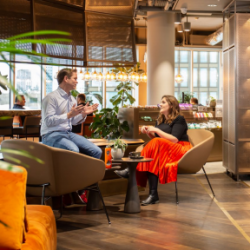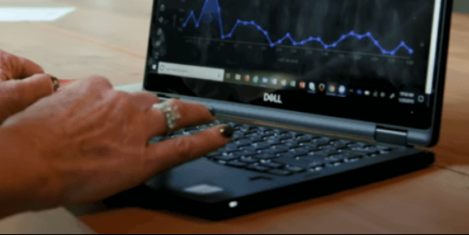To provide the best experiences, we use technologies like cookies to store and/or access device information. Consenting to these technologies will allow us to process data such as browsing behaviour or unique IDs on this site. Not consenting or withdrawing consent, may adversely affect certain features and functions.
The technical storage or access is strictly necessary for the legitimate purpose of enabling the use of a specific service explicitly requested by the subscriber or user, or for the sole purpose of carrying out the transmission of a communication over an electronic communications network.
The technical storage or access is necessary for the legitimate purpose of storing preferences that are not requested by the subscriber or user.
The technical storage or access that is used exclusively for statistical purposes.
The technical storage or access that is used exclusively for anonymous statistical purposes. Without a subpoena, voluntary compliance on the part of your Internet Service Provider, or additional records from a third party, information stored or retrieved for this purpose alone cannot usually be used to identify you.
The technical storage or access is required to create user profiles to send advertising, or to track the user on a website or across several websites for similar marketing purposes.
 As COVID-19 has forced businesses to change where and how they work this year, the learning disability charity Mencap is now calling on employers to think differently about WHO they employ. The pandemic has highlighted the invaluable contribution people with a learning disability and/ or autism can make as hardworking and valued employees. (more…)
As COVID-19 has forced businesses to change where and how they work this year, the learning disability charity Mencap is now calling on employers to think differently about WHO they employ. The pandemic has highlighted the invaluable contribution people with a learning disability and/ or autism can make as hardworking and valued employees. (more…)







 A third of flexible workspace providers reported that occupancy rates have remained relatively stable through the global lockdown, only falling by 10 percent. On average, operators reported demand for flex space at 52 percent of pre-Covid levels, but some suburban markets have seen significant growth and pricing in those areas has increased.
A third of flexible workspace providers reported that occupancy rates have remained relatively stable through the global lockdown, only falling by 10 percent. On average, operators reported demand for flex space at 52 percent of pre-Covid levels, but some suburban markets have seen significant growth and pricing in those areas has increased. 
 New research conducted on behalf of
New research conducted on behalf of 
 A new award recognising the work undertaken by building services professionals and the wider supply chain to combat the effects of COVID-19 has been set up by
A new award recognising the work undertaken by building services professionals and the wider supply chain to combat the effects of COVID-19 has been set up by 


 Workers are feeling compelled to demonstrate presenteeism and availability to employers in the wake of the COVID-19 outbreak, claims a new global study from the
Workers are feeling compelled to demonstrate presenteeism and availability to employers in the wake of the COVID-19 outbreak, claims a new global study from the 
 According to new research from
According to new research from 
 Workers have become less open about their mental health struggles since the coronavirus outbreak because of fears they could lose their jobs if they speak up, claims new research from the
Workers have become less open about their mental health struggles since the coronavirus outbreak because of fears they could lose their jobs if they speak up, claims new research from the 
 New research from
New research from 
 After a multi-year global consultation, the World Green Building Council (
After a multi-year global consultation, the World Green Building Council (







November 6, 2020
Furlough schemes are leaving isolated staff down in the dumps
by Steven Buck • Comment, Wellbeing, Workplace